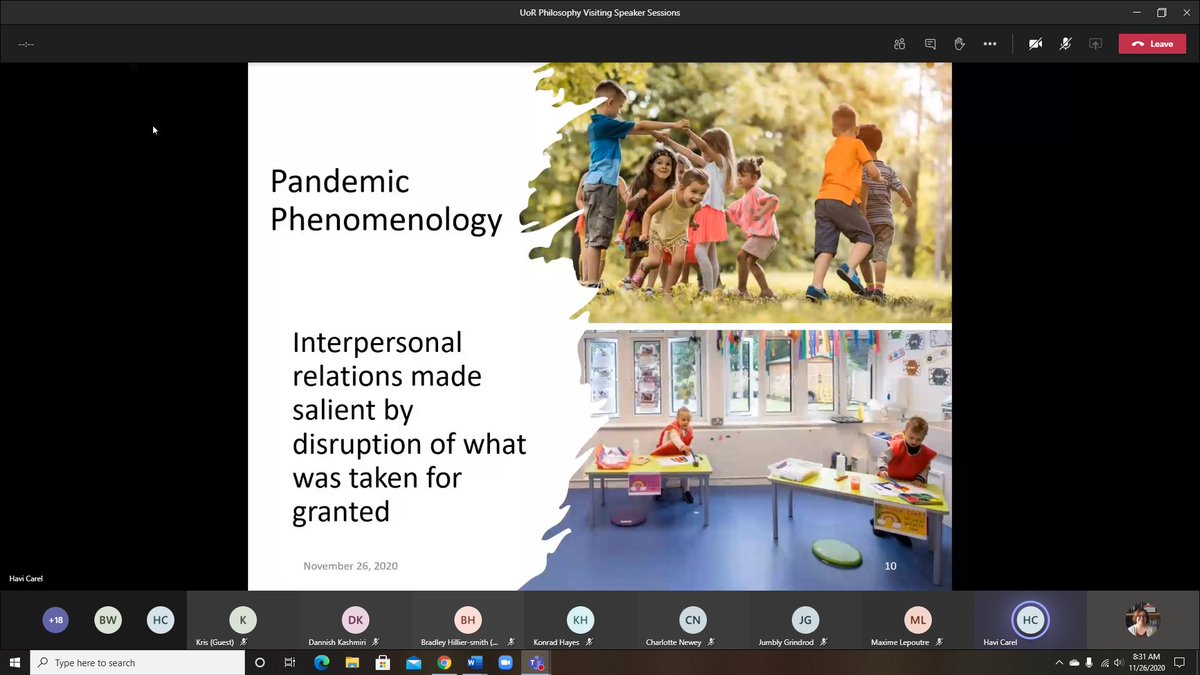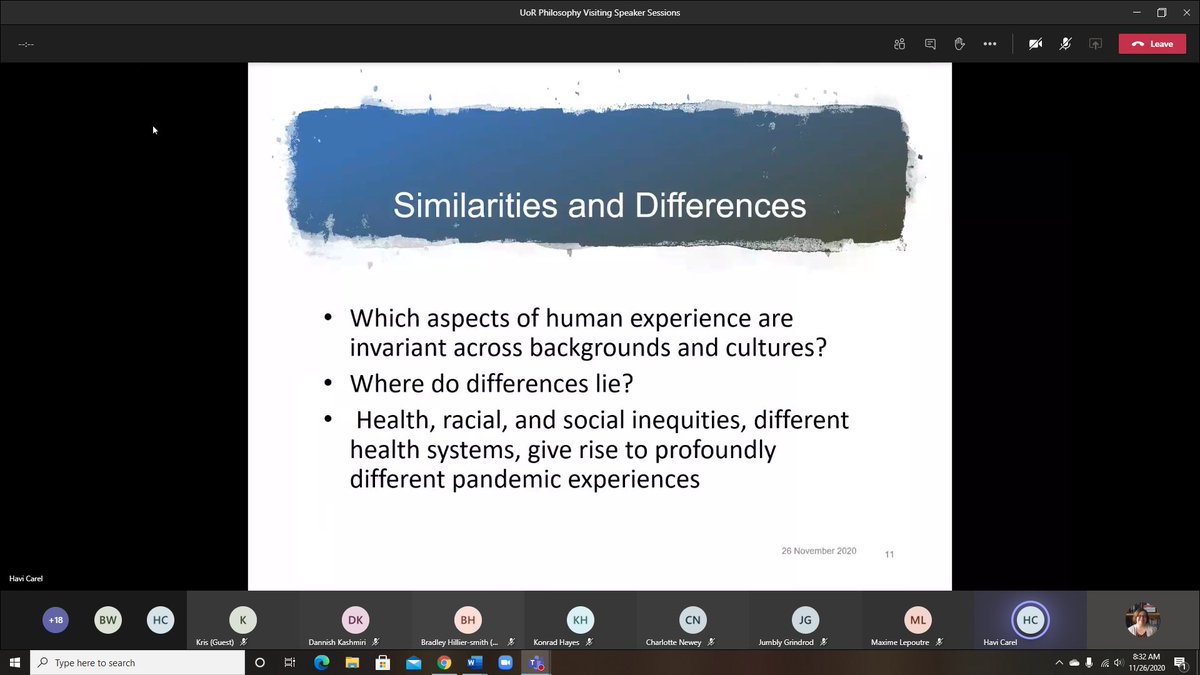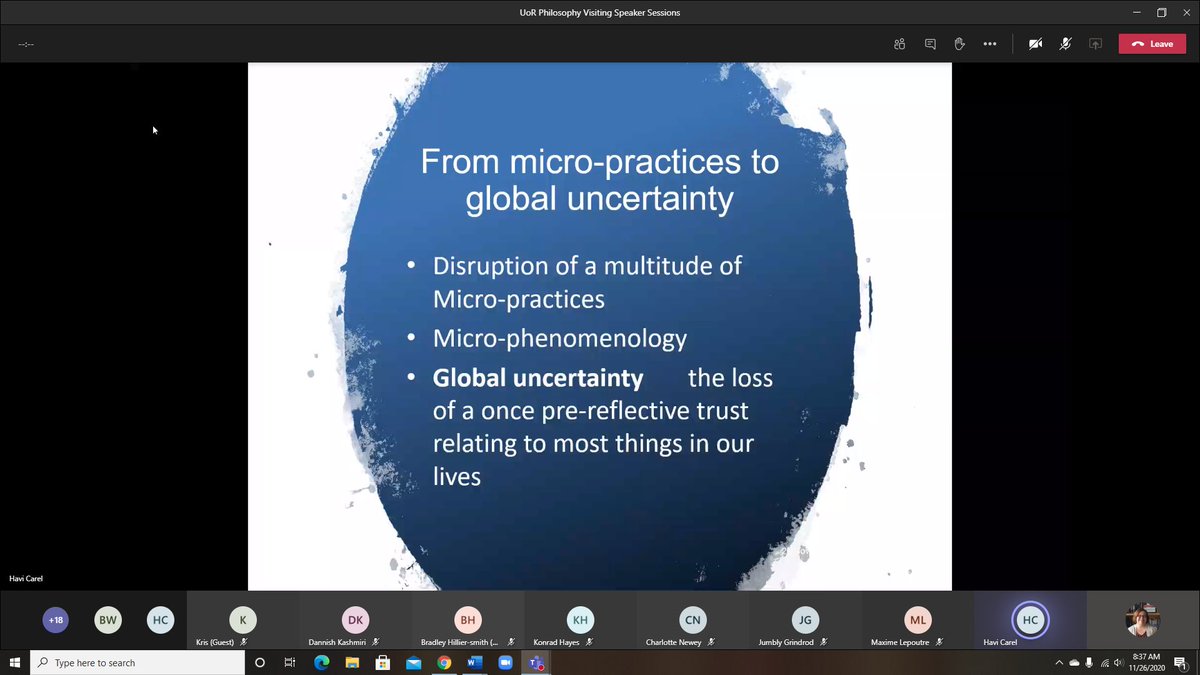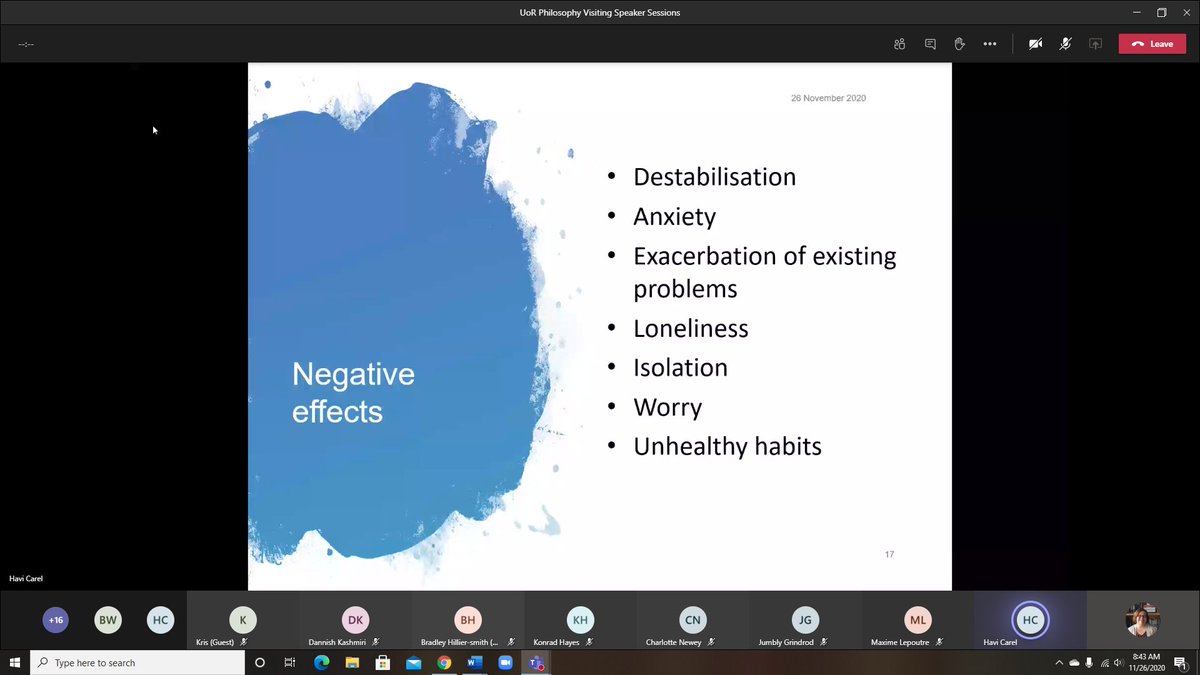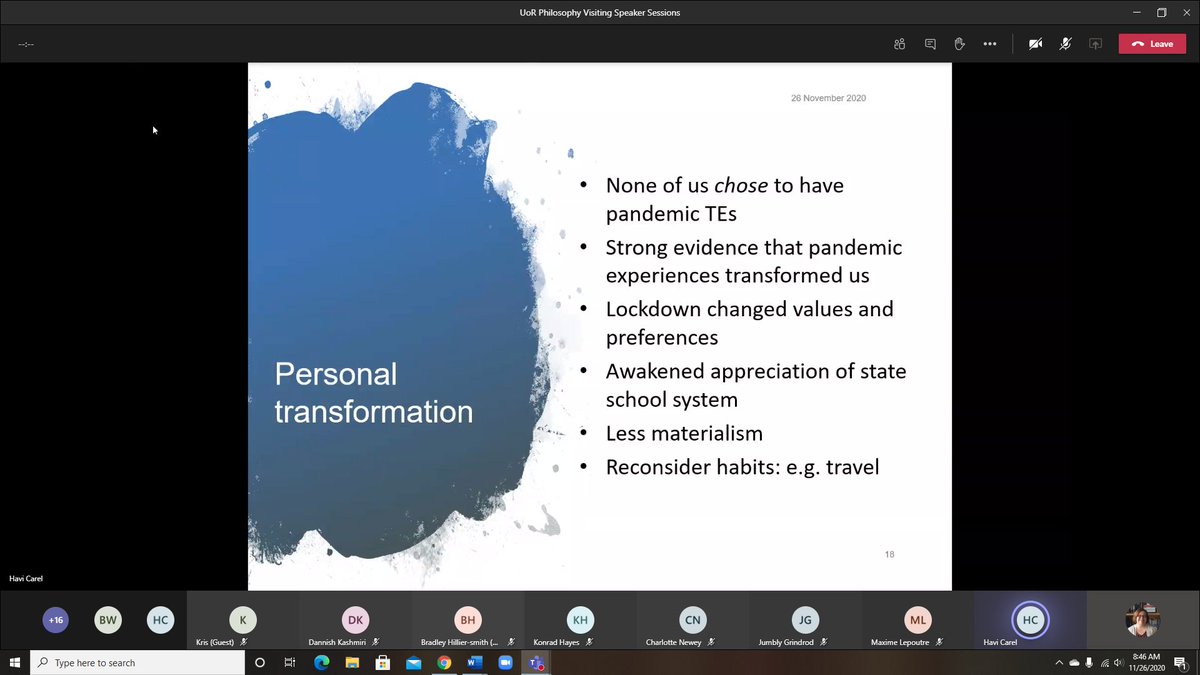Y& #39;all, I got up early (US) to attend a talk by Havi Carel online at University of Reading (UK). Worth it. She is talking about the way that pandemic changes can reveal our social habits of being-in-the-world which only become apparent to us when disrupted. http://blogs.reading.ac.uk/philspeakers/ ">https://blogs.reading.ac.uk/philspeak...
Prior to the pandemic, we congregated in particular ways (REIHELD NOTE: housed vulnerable, disabled and elderly persons in particular ways). Now, we can realize the ways these practices gave meaning, and reflect on them, more critically than before disruption.
Carel is widely known in bioethics as a phenomenologist, so no surprise here to find her using Heidegger. But particularly exciting is her use of Lori Paul& #39;s Transformative Experience, as well: essentially, an experience with an epistemic character of being unknowable beforehand.
But there& #39;s an enormous epistemic problem here in decision-making, says Carel: we can& #39;t assign values during decision-making (not well) because we don& #39;t know how HAVING the experience will change our values/preferences. We are changed in ways that matter but we can& #39;t anticipate.
Now, mask-wearing and creating distance--moving across the sidewalk, or even crossing the street--mean respect rather than rudeness. Huge shift in social phenomenology. Profoundly changed in a very restrictive form. [REIHELD NOTE: also lack of access for comforting ill relatives]
So, huge rise in mental ill health in part as a result of the way our embodied being-with has been disrupted. Big rises in general anxiety, but also loneliness. Pandemic phenomenology reveals what was taken for granted: close play, touch, near bodies. Togetherness disrupted.
Phenomenology, Carel says, is sometimes thought to flatten human experience to seek what is common to all (Heidegger& #39;s Da-Sein, for instance). But it can reveal salient differences not just in then vs. now, but in for whom shifts have changed the most: racial disparities, etc.
REIHELD NOTE: huge disparity highlighted = not only racial differences in pandemic effects (profound in the US), not only class differences (who shifts to work-from-home, who has to carry on as usual with loads of contact daily), but also institutionalization (age/disability).
Loads of micro-practices are disrupted, simultaneously: elbow bump replaces hand shake, but also how to celebrate religious festivals and to worship, holidays, meetings, school, social gatherings of any kind or size etc. Small changes, pervasively disrupted--->global uncertainty.
So, this disruption lets us see what we had taken for granted, as there is pervasive breakdown of habits. We get to reflect on which habits matter to us, which norms and routines and structures we want back. IMPLICATION: we also get to discard them, replace them.
So, there are positives: new routines, working from home finally clearly viable (which can benefit folks with mobility disabilities or whose homes suit them better than workplaces), renewing old friendships with distant persons over Zoom, etc.
But of course, there were also negatives: complete breakdown of basic structures of the everyday, from social interaction (loneliness) to work to meals and what people choose to eat and how. REIHELD NOTE: for some folks, pandemic baking wasn& #39;t stress relief; it was getting bread.
Pandemic = unchosen transformative experiences (TEs). 1st lockdown in particular changed people& #39;s values and preferences, and revealed what we always ought to have been appreciating: school systems, for instance, and importance for adult and child wellbeing; less shopping/travel.

 Read on Twitter
Read on Twitter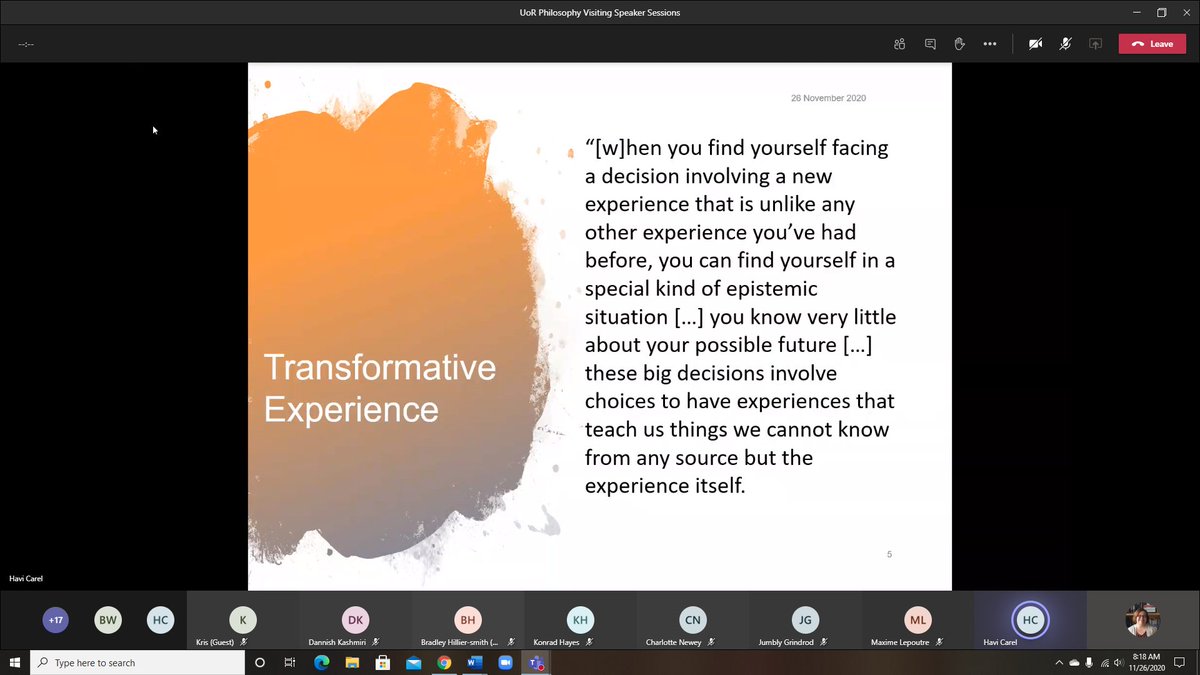
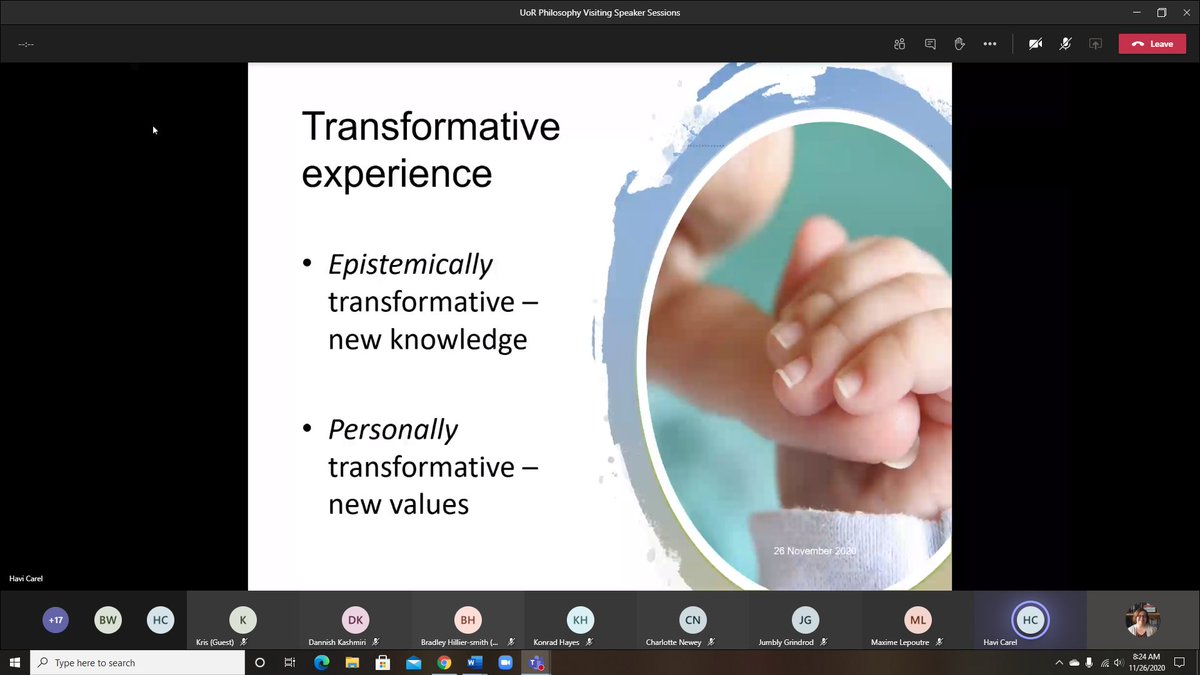
![Now, mask-wearing and creating distance--moving across the sidewalk, or even crossing the street--mean respect rather than rudeness. Huge shift in social phenomenology. Profoundly changed in a very restrictive form. [REIHELD NOTE: also lack of access for comforting ill relatives] Now, mask-wearing and creating distance--moving across the sidewalk, or even crossing the street--mean respect rather than rudeness. Huge shift in social phenomenology. Profoundly changed in a very restrictive form. [REIHELD NOTE: also lack of access for comforting ill relatives]](https://pbs.twimg.com/media/EnwaB45WEAIzZEX.jpg)
